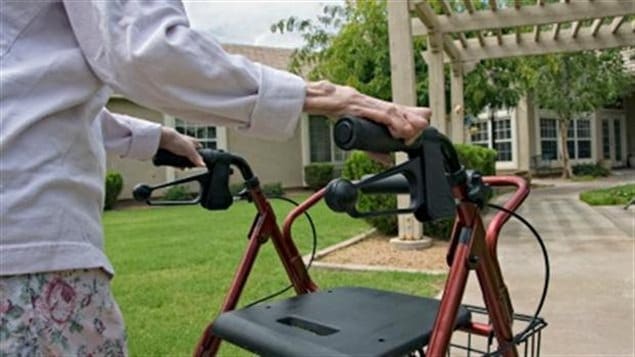A new study will fuel Canada’s vigorous debate about the prescription of antipsychotic drugs for seniors in long-term care facilities. Of 600 residences in the province of Ontario, some gave no antipsychotic drugs and others administered them to 67 per cent of their residents. This wide variation raises troubling questions for health authorities.
‘Variation is hard to explain’
“There might be some differences in the types of residents that live in those homes, but that type of variation across them is hard to explain,” says Mark Dobrow, a vice-president of Health Quality Ontario. That body is the advisor for quality in the Ontario health care system and it prepared this report.
Some residents suffer from psychosis or are violent and may need the medication, Dobrow acknowledges. “But in other situations, homes…may not have the resources or capacity to care for the residents in the way they need. So sometimes, the concern is that the antipsychotics are used as an alternative to care for the patients when there isn’t another alternative available.”
ListenAre seniors ‘chemically warehoused?’
Some families have complained more bluntly that their relatives are being “chemically restrained” or “chemically warehoused.”

Some seniors weaned off drugs
Some residences have successfully weaned patients from medications using other means and cases are detailed in the report. “They have different programs for engaging their staff, for engaging the families, for providing conditions and surroundings in the home that make it more possible to reduce the need for antipsychotics,” says Dobrow.
Medication can increase risks
Concern over the use of these medications in seniors’ residences has also involved possible side effects such as a greater risk of falling, sleepiness, and a slightly higher risk of death. This has become an issue across Canada and other countries like the U.S. and U.K.
A need to increase awareness
Over all the use of antipsychotics in the residences studied decreased from 32 per cent in 2010 to 29 per cent in 2013. But the wide variation in its use in different residences signals a need to examine the issue closely, says Dobrow.
“What we want to do is raise the conversation so that people that prescribe the antipsychotics, people that work in these homes and the families of the residents themselves have an understanding that they really need to look more carefully at the issue.”







For reasons beyond our control, and for an undetermined period of time, our comment section is now closed. However, our social networks remain open to your contributions.